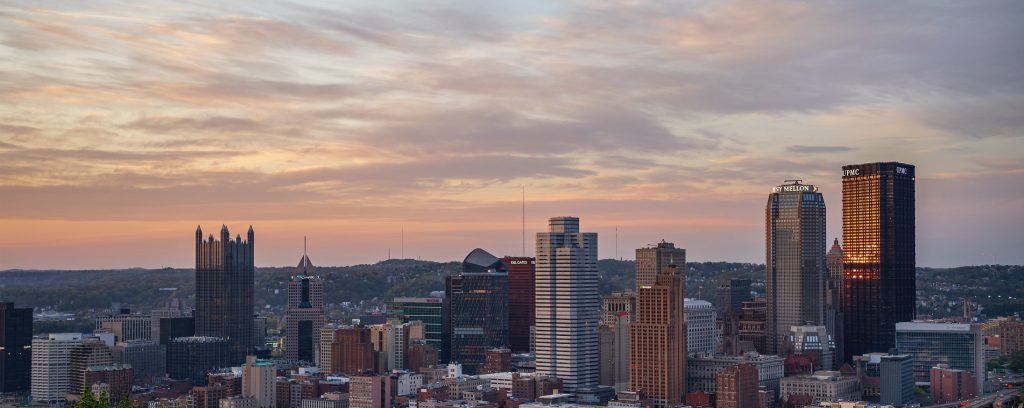
Pittsburgh, the City of Bridges, is often described as affordable, and a great place to live. But lately, inflation has settled into Pittsburgh’s real estate. Home prices have risen. Rents have gone up. And so has just about everything else.
Now, Pittsburgh is tapping $15 million in American Rescue Plan funds to help first-time buyers reach their goals, through an initiative called OwnPGH. As of the time of this writing, no start date has been set. But informational sessions are open for reservations.
Here’s what interested present and future Pittsburgh residents should anticipate as OwnPGH gets under way this year.
Getting Deeds to People
Over the last three years, home prices have surged. Some Pittsburgh residents cannot afford housing at all. Underscoring this reality is the 21% two-year rise in the number of Pittsburgh residents without shelter.
The city had to come up with a plan. It looked at a number of ideas it could boost: housing co-ops? Assistance for developers willing to renovate vacant properties and already-existing housing? Those are good ideas, and often help improve the landscape, especially for renters. But people need stronger help. Those who want to buy real estate in Pittsburgh based on income that falls short of lenders’ current approval criteria are losing out.
The city has decided that OwnPGH will effectively boost modest-income earners who want to buy primary residences. These are earners who make less money than the average. Their income can’t be over 80% of the city’s median income. That means solo buyers who have annual incomes up to $47,500 are eligible. The max income is $54,300 for couples, and more for families, depending on household size.
Approved Buyers Can Get a House or Condo, Through Various Support Strategies
OwnPGH applicants can get up to $90,000. People can apply for:
- Grant funds, up to $50K, for first-time homebuyers (meaning people who have not owned homes for at least three years).
- Forgivable loans, up to $40,000 worth, to help current mortgage borrowers.
For the people awarded the $50K grants, still more good news awaits. The Housing Authority of the City of Pittsburgh (HACP) is offering matching funds from its Homeownership Program to approved OwnPGH grant applicants.
The match is capped at $40,000. So, a home buyer can conceivably apply for $90,000 worth of support.
And…
Pittsburgh residents should not forget the Down Payment and Closing Cost Assistance Program from the Urban Redevelopment Authority. It supports eligible participants with $7,500 in forgivable loans.
Safety Mechanisms to Support Grant Recipients’ Success
The OwnPGH grant applicants must obtain mortgages through approved lenders. The lenders will need to agree to charge the borrowers normal, not elevated, interest rates. (Parts of the U.S. banking sector have an unfortunate history of jacking up rates to unbearable levels for “affordable” mortgage customers.)
The OwnPGH applicant’s debt-to-income ratio can’t exceed 43%. Again, that is a safety mechanism. A borrower with low debt compared to income keeps a healthy credit profile. (The monthly payments a person owes, divided by monthly income earned before taxes and deductions, equals the debt-to-income ratio.)
OwnPGH provides safety nets for homeowners who could otherwise fall behind with payments. One of these safety nets is HACP’s foreclosure prevention assistance — up to $3,000 for a struggling household.
Now, let’s take a look at one of the most striking offerings from OwnPGH: ten-year, forgivable second mortgage loans.
Forgivable Second Mortgages
The Housing Authority of the City of Pittsburgh (HACP), together with the city’s Urban Redevelopment Authority (URA), can help current owners with modest incomes, too, through OwnPGH. The initiative offers interest-free second mortgages with ten-year loan terms. There is no minimum monthly payment during the ten years. The loans do require payoffs when the homeowners sell or refinance their homes. If, at the end of the term, the owner is holding onto the home, the remaining debt is forgiven.
The goals of this project?
- To keep people housed. These second loans carry a built-in incentive to stay in the home and benefit from debt forgiveness.
- To support something closer to fair wealth opportunities for people currently struggling with their mortgage financing, rather than let homeownership become a prerogative of the upper class only.
After all, a key factor in saving and passing wealth through generations is access to homeownership without fear of default.
Q&A: Frequently Asked Questions

Q. Who can apply for OwnPGH?
- People of modest incomes who receive mortgage pre-qualification from one of three banks may apply. See the section below on finding out more about the banks and their terms. All participating homes have to be located within the City of Pittsburgh boundaries.
Q. What agency is responsible for distributing the funding?
- Pittsburgh’s economic development division is called the Urban Redevelopment Authority of Pittsburgh, or URA. It’s focused on things like inclusive housing opportunities; small business development; neighborhood revitalization plans; and workforce support and education.
Coming Up Soon: Information Sessions
Pittsburgh residents can learn more about how OwnPGH may apply to them through a series of special events:
- On February 22, 2023, from 10 a.m. until noon, an OwnPGH information session will happen in Pittsburgh. Tickets are available here. The host is the Urban Redevelopment Authority of Pittsburgh, which is joined by the First Commonwealth Bank. Those who attend will get the opportunity to speak with URA and bank representatives, in addition to receiving an introduction to the new initiatives.
- There will be another information session on March 1, 2023 — this one hosted by the Urban Redevelopment Authority of Pittsburgh with SSB Bank. The session will enable people to converse with reps from both URA and SSB Bank. Tickets can be reserved here. Admission is free.
- And the hits keep coming! On March 8, 2023, there will be yet another OwnPGH Information Session in Pittsburgh. The featured financial institution will be Dollar Bank.
OwnPGH will be rolled out this year. These sessions will supply important knowledge to help interested households plan to make the most of what OwnPGH is about to offer.
As always, thank you for reading. Kindly note that the content of this article is recent news and information relevant to home buyers, owners, and readers with an interest in real estate, deeds, and titles. It is not financial advice. It is not legal guidance. We cannot offer every detail about Own PGH or its impact on homeowners in this column. The links to information sources do not constitute an endorsement of these services, or case-specific advice. Other resources might better fit a particular reader’s situation. More simply stated: Due diligence is always an essential part of making personal housing decisions.
Supporting References
Brenden Rearick for NEXTpittsburgh.com: First-Time Homebuyers in Pittsburgh Getting a Boost From OwnPGH (Jan. 18, 2023).
TryingTogether.org: News URA Offering Funds for Low-Income and First-Time Homebuyers (Feb. 8, 2023).
The Urban Redevelopment Authority of Pittsburgh: Down Payment and Closing Cost Assistance – Financing for First-Time Homebuyers in the City of Pittsburgh.
The Housing Authority of the City of Pittsburgh, via HACP.org: Home Ownership.
Consumer Financial Protection Bureau (CFPB), a U.S. government agency, via ConsumerFinance.gov: Mortgages – What Is a Debt-to-Income Ratio? (last reviewed Jun. 8, 2022).
And as linked.
Photo credits: Federated Art and Mikhail Nilov, via Pexels.
